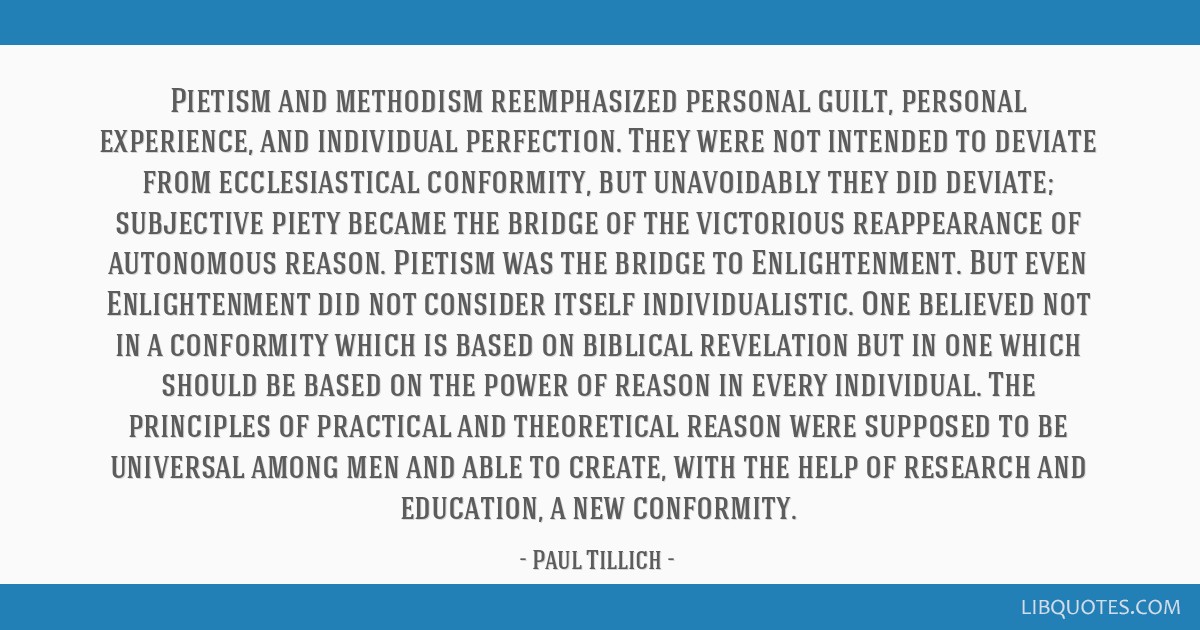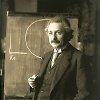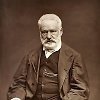Pietism and methodism reemphasized personal guilt, personal experience, and individual perfection. They were not intended to deviate from ecclesiastical conformity, but unavoidably they did deviate; subjective piety became the bridge of the victorious reappearance of autonomous reason. Pietism was the bridge to Enlightenment. But even Enlightenment did not consider itself individualistic. One believed not in a conformity which is based on biblical revelation but in one which should be based on the power of reason in every individual. The principles of practical and theoretical reason were supposed to be universal among men and able to create, with the help of research and education, a new conformity.
p. 114 - The Courage to Be (1952)























